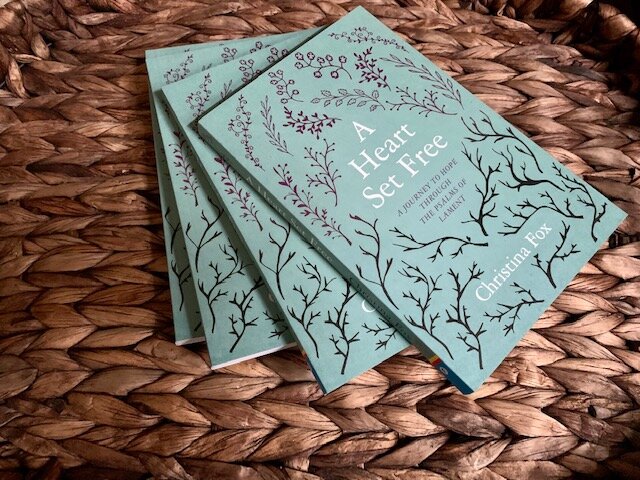In my counseling work, I hear hard stories and the groaning of counselees in the face of significant hardship. When I meet with friends for coffee, I hear of trials and tribulations, of sorrows and fears. In my own life, I weep and groan over losses and cry out to God for help and wisdom in uncertain times. I’m sure I’m not alone in this. We all groan over life lived in a fallen world that is filled with pain and sorrow and perhaps we wonder, does God hear our groaning? Does he hear our cries for help?
In Psalm 12, David experienced difficult circumstances. Just as in other psalms, David comes to God in lament because of his enemies. In this psalm, we see him experience verbal oppression by his enemies. “Save, O LORD, for the godly one is gone; for the faithful have vanished from among the children of man. Everyone utters lies to his neighbor; with flattering lips and a double heart they speak” (v. 1-2). It seems as though everyone is out for themselves; there is no one who cares to speak the truth. He describes the way in which people lie to one another as “flattering lips and a double heart.” The Hebrew word for “flattery” here is chelqah, a word used to describe division of land. The reference to a “double heart” refers to someone who is not honest about their true intentions. They cover up who they really are with flattery; they don’t reveal their true heart. In their use of flattery, they divide who they are with false pretenses. In doing so, they believe they are powerful (v.4).
David brings his complaint to the Lord in lament and God hears his cries. God responds: “Because the poor are plundered, because the needy groan, I will now arise,” says the LORD; “I will place him in the safety for which he longs” (v. 5). God hears the groans of his people and does something about it.
Charles Spurgeon wrote concerning this passage:
“We are not the first persons who have had reason to complain of the evils by which we are surrounded. But see the power that there is in the sorrows of God’s children to touch the heart of their great Father when he hears their groaning. When those sorrows come to be so bitter that the sufferers can scarcely pray, when they cannot find any language in which to express their grief, when even their desires seem to fail and they are so broken down and made so weak by the various troubles that have crushed them that it comes to just this groaning and nothing more, then God cannot be still. He must get up. He may have hidden his face before, but now he sees that the time has come to manifest his unchanging love and grace.”
In redemptive history, we see God respond to the groans of his people. In Exodus 2, Moses writes about God’s people groaning because of their slavery in Egypt: “the people of Israel groaned because of their slavery and cried out for help. Their cry for rescue from slavery came up to God. And God heard their groaning, and God remembered his covenant with Abraham, with Isaac, and with Jacob. God saw the people of Israel—and God knew” (Ex. 2:23-25). God heard. God remembered. God saw. God knew. When it says “God remembered” it is a covenantal remembering. He acts for his people based on his covenant promises to Abraham, Isaac, and Jacob. Because of his covenant promises, he delivered his people from Egypt and brought them to the Promised Land.
How much more so will God hear, remember, see, and know when we cry out to him in our troubles? After all, on this side of redemptive history, we see the fulfillment of God’s covenant promises in the person and work of Jesus Christ. We see God answer the heart cries of his people by providing the perfect, spotless lamb—the true and final sacrifice for sin. We see God provide a Savior, One who saved us from sin and brought us back into right relationship with God. Unlike those who speak falsehood in Psalm 12, God’s words are pure words (Ps. 12:6). They are words we can trust. They are words which always come to pass. This means we can expect God to hear and respond to our groanings, because he has bound us to himself through the Son.
Paul wrote in Romans 8 that when we don’t have the words to cry out to God, the Spirit himself groans on our behalf: “Likewise the Spirit helps us in our weakness. For we do not know what to pray for as we ought, but the Spirit himself intercedes for us with groanings too deep for words. And he who searches hearts knows what is the mind of the Spirit, because the Spirit intercedes for the saints according to the will of God” (vv. 26-27). When the pains and sorrows of life mute us, there is One who stands before God on our behalf, speaking for us. What grace!
So, does God hear the groans of his people? He does indeed. As David wrapped up his psalm, “You, O LORD, will keep them; you will guard us from this generation forever” (v.7). While life in a fallen world brings great sorrow, and while evil continues to prowl upon the earth, God will keep his people forever.
He hears. He remembers. He sees. He knows.
Photo by Krists Luhaers on Unsplash
























